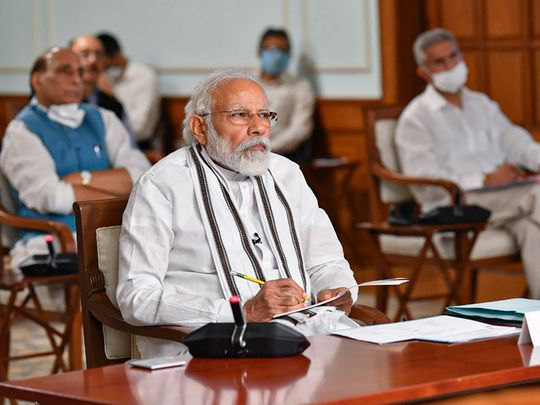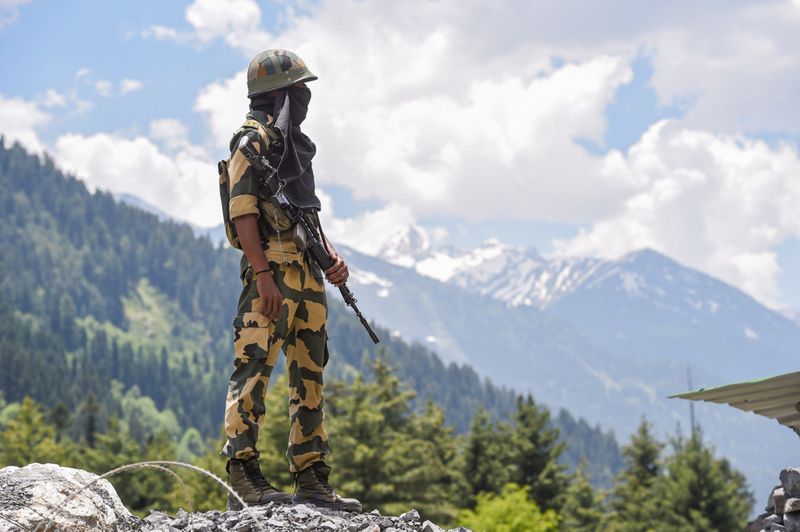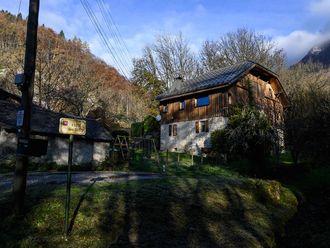
Dubai: In view of Indian Prime Minister Narendra Modi’s statement, following an all-party meeting on Friday night, wherein he said that neither has any part of Indian territory been intruded nor has any Indian border post been overrun, a fresh controversy has been triggered over the ongoing India-China standoff over conflicting territorial claims in Ladakh’s Galwan Valley.
Given the Indian prime minister’s image as a strongman, he is under pressure to downplay the incursions and to make out as if the situation is completely under control.
Addressing the all-party meeting — attended by most of the Opposition parties, including the Congress, through video-conferencing — Modi had said: “Neither have they [China] intruded into our border, nor has any post been taken over by them.”
The controversy arose precisely because of this statement from the Indian PM, which was in stark contrast to the Press note issued by the Government of India, following India’s External Affairs Minister, S. Jaishankar’s dialogue with his Chinese counterpart Wang Yi, in the wake of the killings of 20 Indian soldiers in clashes with troops from the People’s Liberation Army (PLA) of China near Patrol Point 14 in Galwan Valley on the night of June 15. The Press note on June 17 stated: ‘[The] Chinese side sought to erect a structure in Galwan Valley on our side of the LAC [Line of Actual Control].’
Rahul slams PM
Question arises that if the PLA indeed ‘sought to erect a structure ... on our side of the LAC ...’ then how could they have done so without crossing over to the Indian side of the LAC?
Congress leader Rahul Gandhi, taking pot shots at Modi over his statements last night, tweeted on Saturday: “PM has surrendered Indian territory to Chinese aggression. If the land was Chinese: 1. Why were our soldiers killed? 2. Where were they killed?”

Reacting to Modi’s statement and the ensuing controversy, Ajai Shukla, a former colonel with the Indian Army and defence analyst and journalist, told Gulf News from New Delhi on Saturday: “The Indian prime minister appears to have acted on poor advise and undermined India’s territorial possession at the border.”
Clarifying Modi’s statements
With questions being raised at various quarters over the real meaning of the Indian PM’s statements and a post mortem still under way on the full import of his comments, the Prime Minister’s Office in New Delhi issued a statement on Saturday afternoon to clarify Modi’s views and clear the air, saying that the reason why the PM said that “there was no Chinese presence on our side of the border”, was because the Indian soldiers had foiled an “attempted transgression” in Galwan Valley.
However, this post script from the PMO still doesn’t do much to answer the doubt that if no transgression had indeed taken place on the Indian side and if no Indian border post was overrun, then why did 20 Indian soldiers have to lay down their lives?
Downplaying the incursions
Sharing his views with Gulf News, Shukla said: “Given the Indian prime minister’s image as a strongman, he is under pressure to downplay the incursions and to make out as if the situation is completely under control. He has chosen to do so by saying that there are no Chinese on Indian territory, but in fact, there are. And what it amounts to is to say that the territory they [China] are on is not Indian territory.”
‘Unwilling to retaliate’
Asked to comment on with whom does the onus lie in view of the deaths of 20 Indian soldiers, professor Bharat Karnad from the Centre for Policy Research, in New Delhi, and a national security expert, told Gulf News: “The blame has to be shared by the government and the army because the Indian government has been historically accommodationist where China is concerned. And the army influenced the government’s caution in being unwilling to retaliate with harsh actions against the PLA.”
Shukla further observed that by saying that there has been no Chinese incursions on Indian territory, the PM, in a way “is relinquishing Indian claim to that territory and this is extremely detrimental to India’s position on border negotiations”.








